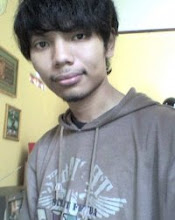
Thought reform the global Islamic influence is also felt in Indonesia. In the early 20 th century Islamic thought upheaval here was marked by internal conflicts which basically describes the dynamics of Islam that is very interesting to watch. Islamic dynamics are influenced by several conditional factors experienced by Muslims due to the pressure at the end of Dutch colonial rule to the 19th century; in which colonial policies dealing more with the interests of Islam. Therefore patterns of thought and renewal forms are born different from the innovations that occurred in previous times.
At least two conditional factors which can be described here, first, the existence of Islam in Indonesia at this time across the domination of economic, social, political and colonial culture. As a result of this dominance, Islam became marginalized compared with the priayi or aristocracy (Steenbrink, 1986; 24). Furthermore this condition is actually more touching than Islam indigenous issues alone, due to discriminatory treatment and a negative bias on the part of non-natives. Which can be seen on the thoughts that developed in the Islamic States to reject discriminatory treatment (negative bias) of a native to Indonesia to widespread demands for the birth of self-identity as a nation that can determine their own destiny in politics and rejecting capitalism (cf. Korver , 1985; 43). Second, the Islamic intellectual circles there is a conflict about the status of religion in political and social life. This begins with the challenges faced by the Islamic States at the time of setting the basic ideas of their movement with the "Islamic nationalism", as later also seen from the polemic between Sukarno with A. Hasan and Natsir in the 20's (cf.: Noer, 1983; 186-187). This polemic questioning the status of religion in politics and the state.
2
Reformist groups such as A. Hasan and Natsir argue that religion (Islam) has a universal doctrine which includes ukhrawi worldly life and, therefore Islam has concepts of social and political life is clear. But this view was challenged by nationalist groups (represented by Sukarno's view) that tends to narrow the meaning of diversity as merely a private affair with God and must be separated from politics and state affairs. Polemic about it for later appeared in various socio-political setting in Indonesia even until now. In the early 20 th century, some essential changes have occurred to the orientation of Islamic reform, which is an attempt to return to the Qur'aan and Sunnah, and reject the religious traditions that are inconsistent with the original source. Meanwhile, other changes visible from the national consciousness that emerged from Islamic leaders in order to deal with colonialism. This awareness is manifested by persistent efforts of Muslims to raise the dignity of this nation by strengthening the economic and social organization pambaharuan Islamic education system (Steenbrink, 1986; 26-28).
The birth of Islamic States (1911) shows a clear orientation to improve the economic position of Muslims. Muhammadiyah (1912) appeared also with the main orientation of the renewal of Islam in maintaining the purity of Islam and foster the spirit of building a nation with modern principles which - if necessary - refer to Western patterns. This trend is shown by the Muhammadiyah's educational system by referring to 'secular'. Although initially very challenged by the traditionalist as dhatul Well-Ulema, but the current rate of development becomes difficult to blocked and then gave birth to the modern intellectual. Meanwhile, a traditionalist group with organizational systems and traditional education systems still survive with a traditional concept, so that the resulting intellectual also exist in the dynamics of the national struggle. This is despite the birth of modernist dichotomy between the classes and groups in the Islamic traditionalists, but the combination of these two camps, at least in the first half of the 20th century, has been jointly create national solutions.

0 comments:
Post a Comment